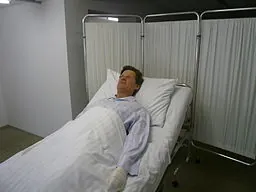
Management of Blunt Trauma Chest Injuries
Management of Blunt Trauma Chest Injuries Management of Blunt Trauma Chest Injuries I’m Ed Smith, a Sacramento Chest Trauma Lawyer. Patients who seem clinically stable…
Edward Smith
February 25, 2016
Posted In: Auto Accidents
Posted In: Blunt Trauma
Posted In: Cardiac Contusions
Posted In: Trauma
Posted In: Vehicle Accidents
Tagged: Sacramento Auto Accident Attorney
Tagged: Sacramento Chest Trauma Attorney
Tagged: Sacramento Chest Trauma Lawyer
Tagged: Sacramento personal injury attorney


